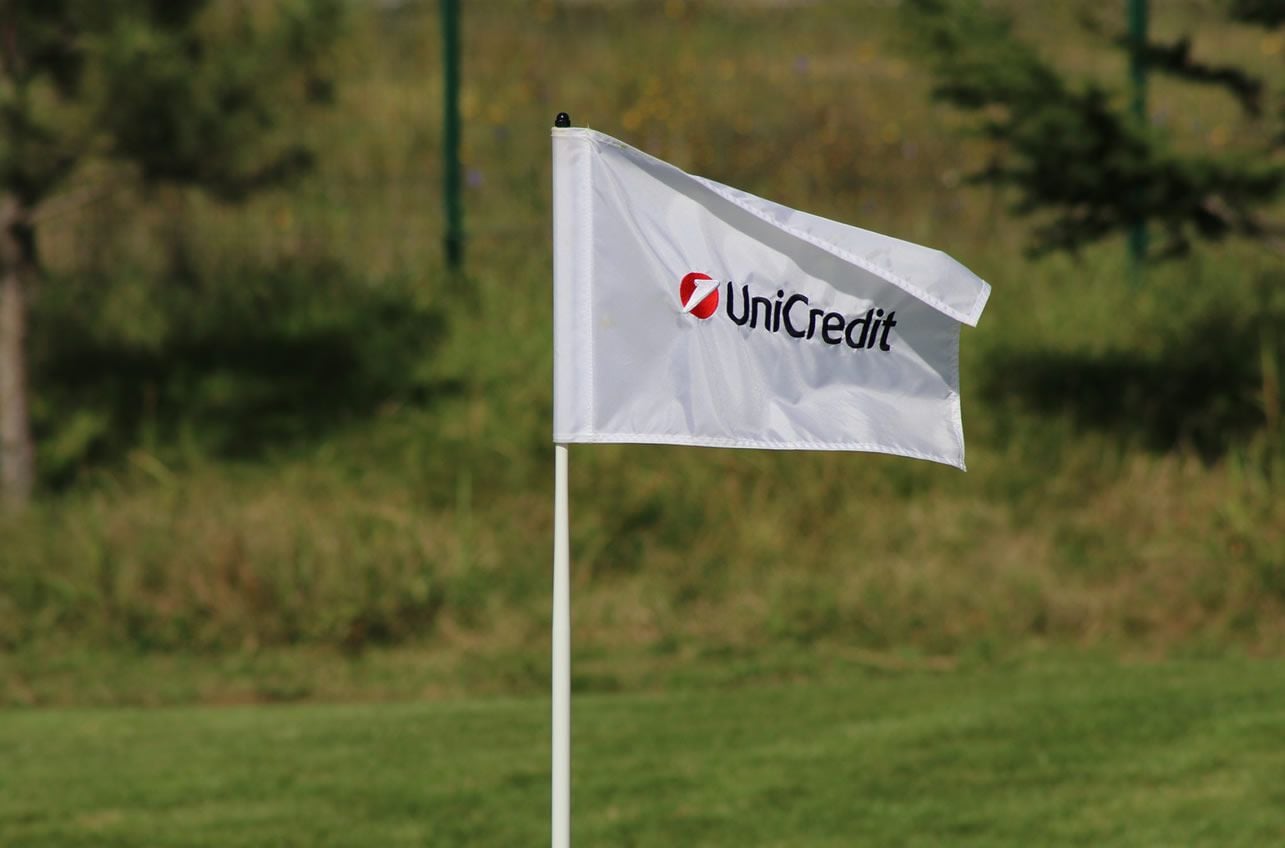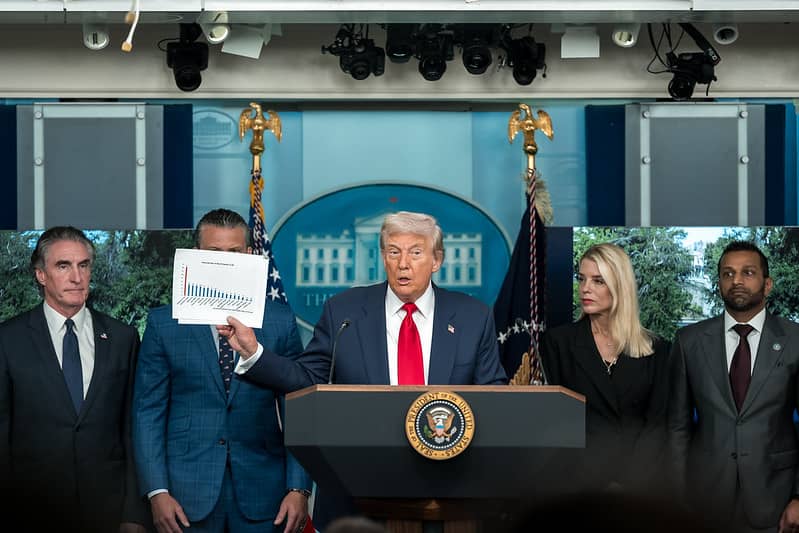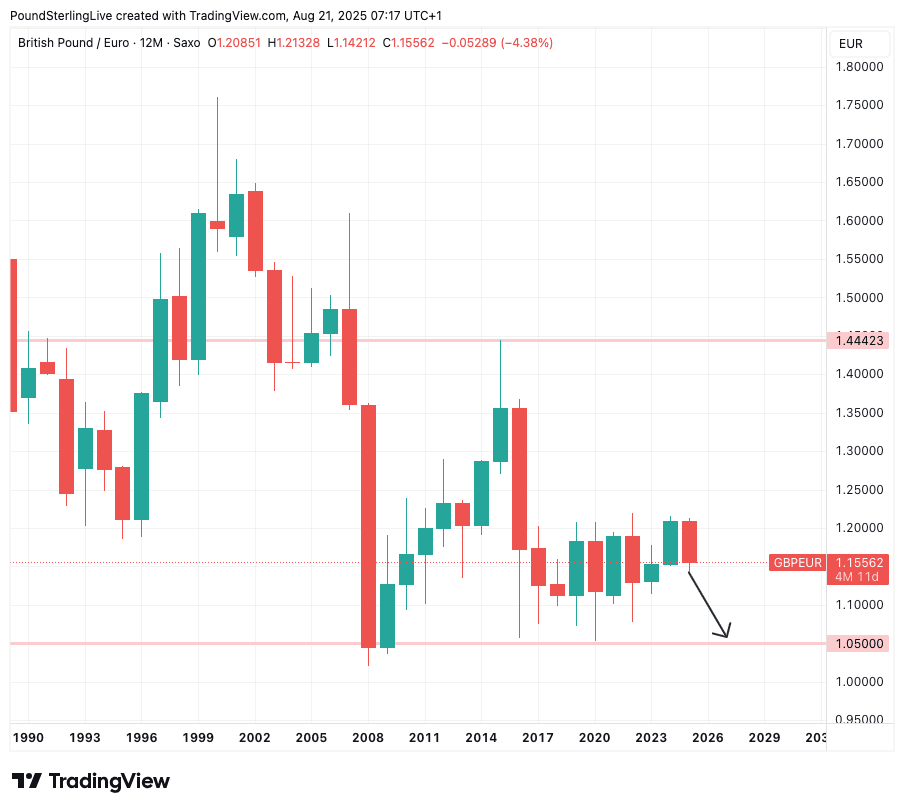
Image © PGAs of Europe, sourced from Flickr, licensed under CC 2.0.
Pound Sterling will fall to all-time lows next year, says one of Europe's biggest banks.
Unicredit, the Milan-based lender and investment bank, says the fall in the Pound to Euro exchange rate lies with the Bank of England, which will cut interest rates faster than the market is expecting in response to a cooling economy and labour market.
Speaking in an interview, Roberto Mialich, senior global currency strategist at UniCredit, says the Bank of England "will probably continue to move on a quarterly basis."
"If we are right, clearly this will have a more negative impact on sterling," he adds.
He pencils in a rise in EUR/GBP to 0.95, which would take the GBP/EUR cross down to 1.05, which would put it at the bottom of the long-term range.
For context, the all-time low is at 1.02, which was reached at the height of the global financial crisis in 2008.
1.0573 was achieved in the wake of the Brexit referendum in 2016 and 1.0526 was hit during the Covid pandemic market fallout of 2020.
In short, 1.05 represents crisis-era levels for the Pound and speaks of a currency that has been unable to recoup the value it lost in the 2007-2008 selloff (it was as high as 1.60 in 2007!).
Momentum is now with UniCredit again: our tracker of investment bank forecasts shows a notable reduction in the consensus forecast for Pound-Euro over all timelines since the second quarter of 2025.
The UniCredit call puts it well below the consensus of its peers, and should feature in risk management considerations for those with payments involving euros and pounds over the coming months.
UniCredit says the Bank should cut interest rates again in November, in defiance of current market expectations that show investors no longer see a cut happening owing to elevated inflation.
Daniel Vernazza, Chief International Economist at UniCredit in London, says the Bank will cut twice more in 2025, in November and December. "We see the bank rate ending next year at 2.75%, which we see as broadly neutral."
This compares to the market's expectation for the resting place to be at 3.6%.
If UniCredit is right, a significant 'dovish' repricing must take place, at the expense of the Pound. But for this to happen, inflation must start to cool rapidly.
UK inflation for July surprised to the upside when released on Wednesday, rising to 3.8% year-on-year in July from 3.6% in June. Services CPI inflation rate rose from 4.7% to 5.0%, while food inflation rose to 4.9% y/y. Economists at the Bank of England look for a peak of 4.0% in September.
The Pound initially rose in reaction to the data release, as would usually be the case. But gilt yields and the Pound then fell and ended the day lower than where they started, which was a surprise.
A closer inspection of the financial dashboard showed that markets had actually increased bets for the amount of cuts to come in 2026, suggesting the market thinks the pause now will lead to greater scope for cuts next year, which would ultimately weigh on the Pound.
This is the thinking at UniCredit, where there is a bet that investors will "aggressively reprice more easing" next year on the view that the UK labour market will weaken and prompt a meaningful retreat in inflation.
"The labour market has deteriorated, wage growth has eased, and economic growth remains subdued with downside risks. In time, this margin of slack would put downward pressure on inflation," says Vernazza.
Quant Metriks: GBP/EUR is Only Going Higher
Highlighting some uncertainty around where Sterling is headed is research from Quant Metriks, that looks for a steady appreciation in the UK currency against both the Euro and Dollar.
We reported last week that Dr. Savvas Savouri, Managing Director of QuantMetriks, said the Trump administration is reviving past Republican tactics that will yield repeat outcomes: namely, tariff threats that trigger a devaluation of the U.S. Dollar.
"Yes, having languished for so long, the pound will rise against the dollar... the pound will also rise relative to the euro," he says.
Significant gains for the British Pound are possible in this new era of U.S. Dollar devaluation, argues a new research note from QuantMetriks Advisory, the London-based boutique specialising in applied macro and microeconomic research.
"Yes, having languished for so long, the pound will rise against the dollar... the pound will also rise relative to the euro," he says.

File image of U.S. President Donald Trump. Official White House Photo by Abe McNatt.
Gains against the Euro are also likely as the eurozone is described as facing deepening structural weakness, exacerbated by a rising euro (relative to USD and JPY).
Savouri says the deterioration in domestic fundamentals would likely force the European Central Bank (ECB) into aggressive monetary easing, possibly even renewed quantitative easing.
In contrast, the Bank of England will struggle to justify market expectations of further rate cuts because UK real economic indicators are described as "relatively OK," while inflation is still sticky at around 3%.
In fact, the QuantMetriks forecast for Bank Rate over the 2025-2029 period is 4.00 to 5.00%.
Savouri expects any upward move in the Pound to be sharp and self-reinforcing, noting:
"When the pound does begin to move higher... it will do so as steeply as when it has behaved that way in the past."

